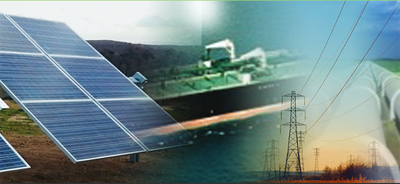Energy: Italy well on track to meet CO2 target but critical issues face energy security and costs. 30% higher electricity bills for medium-low consumption enterprises compared to EU average
23/6/2016
ENEA has launched the Quarterly Review of the Italian energy system, the new information service whose first issue shows a snapshot of the first three-months of 2016 and analyzes the 2015 trends. Among the innovations, a condensed index for evaluating how well the so-called energy trilemma (decarbonisation, energy security and energy affordability) - around 63% in 2015- is addressed.
 In the first three months of 2016, national energy consumption dropped by 0.6% (partly due to a milder winter), with a 4% increase in oil products and a 5% decrease in gas use in the residential sector. At the same time, the electricity generation mix showed a rise in the use of fossil sources (gas +11%) and a drop in renewables, caused by a significant decrease in hydroelectric production (-17%). Overall, wind and solar remained stable instead, as reported in the first issue of the ENEA Quarterly Review of the Italian energy system, available at www.enea.it.
In the first three months of 2016, national energy consumption dropped by 0.6% (partly due to a milder winter), with a 4% increase in oil products and a 5% decrease in gas use in the residential sector. At the same time, the electricity generation mix showed a rise in the use of fossil sources (gas +11%) and a drop in renewables, caused by a significant decrease in hydroelectric production (-17%). Overall, wind and solar remained stable instead, as reported in the first issue of the ENEA Quarterly Review of the Italian energy system, available at www.enea.it.
The report analyzes the first three months of 2016 and the main 2015 trends, providing for the first time an assessment of the energy transition towards a low-carbon system through a condensed index showing how the so-called energy trilemma- decarbonisation, energy security and energy affordability- is addressed.
“Overall,-Francesco Gracceva of the ENEA Studies and Strategy Unit, head of the research team that conducted the analysis- at the end of 2015 Italy showed a 63% score in balancing the energy trilemma, due to the fact that is well on track to meeting the 2020 decarbonisation target, combined with significant critical issues with respect to energy affordability and energy safety”. The main critical issues are related to the cost of energy which affects competitiveness of the production system: ENEA places the current price of electric energy for the Italian enterprises with medium-low consumption around 4 euro cents per kW more than the UE average, equivalent to 30% more (after deductible taxes), showing a dual trend in the years 2010-2015, with a progressive misalignement between the Italian and the average EU’s prices, although recording a slight improvement since 2013.
As regards energy security, at the end of 2015 the electricity market still presented the critical issues emerged over the last years, such as the low profitability of the generating facilities. The refinery sector faces the same critical issues despite an increasing use of the facilities and a rise in diesel fuel and petrol export, +150% and + 20% respectively, compared to 2014.
As for natural gas, its decreasing demand over the last years has considerably eased the tensions but the analysis shows that extreme events (not ruled out a priori), such as winter disprutions of Russia’s gas supply, can still entail significant risks.
In terms of decarbonisation, at the end of 2015 Italy did better than the 2002 UE’s target for Co2 emissions (already 34% lower than the target), despite an over 3% increase in emissions production last year, mainly due to a rise in energy consumption (+2.5 compared to 2014) and an increased use of fossil sources (+3.8%)
“The new methodology developed by the ENEA researchers-Gaetano Borrelli, Head of the ENEA Studies and Strategies Unit pointed out- allows to provide the scientific community and decision makers with a timely and efficient service on those aspects characterizing the development of the Italian energy scenario, particularly as regards the energy transition challenges”.
The ENEA Quarterly Review of the Italian energy system is the outcome of a systematic monitoring and follow-up activities, providing a comprehensive overview, rich in tables and graphs, to companies, operators, researchers and the media.
Link to the Quarterly Review (Italian version):
For more information please contact:
Gaetano Borrelli, Studies and Strategies Unit, geatano.borrelli@enea.it
Francesco Gracceva, Studies and Strategies Unit, francesco.gracceva@enea.it
